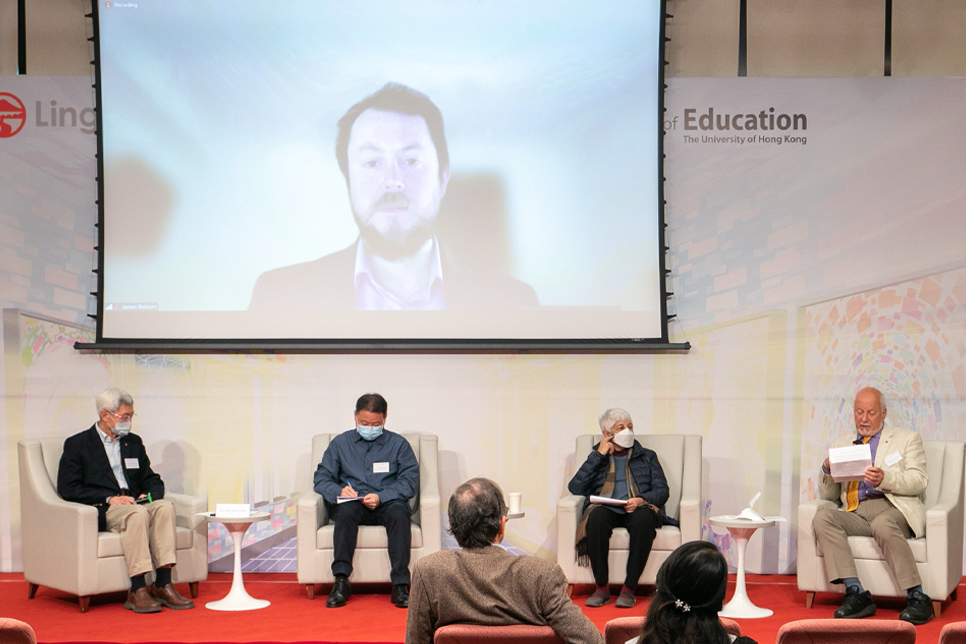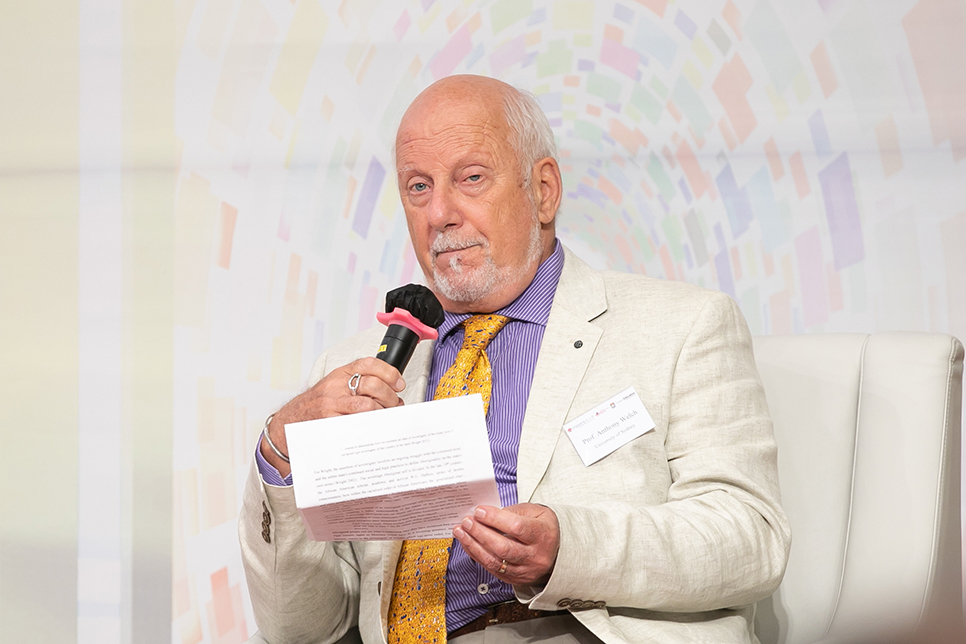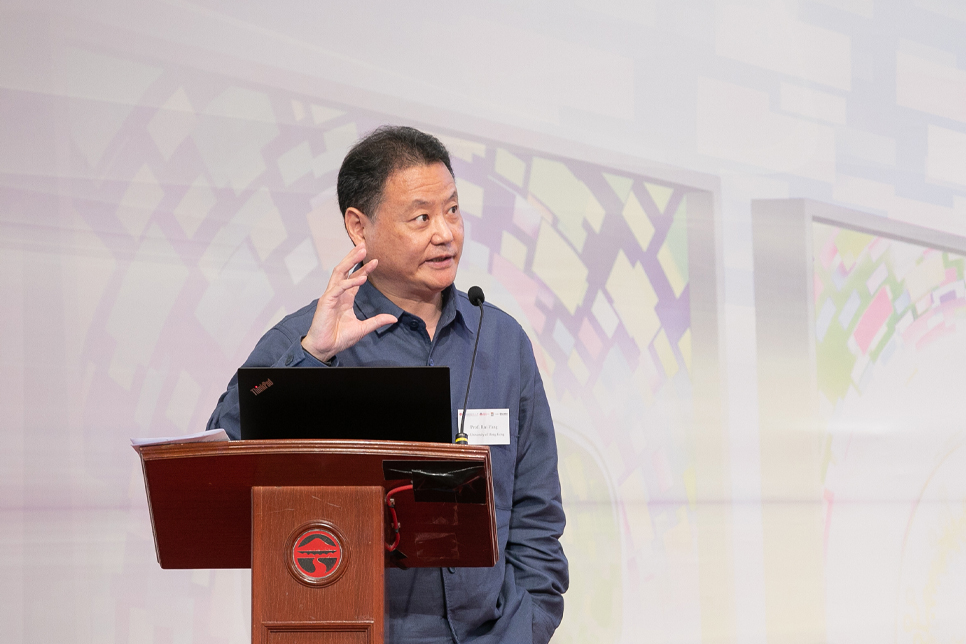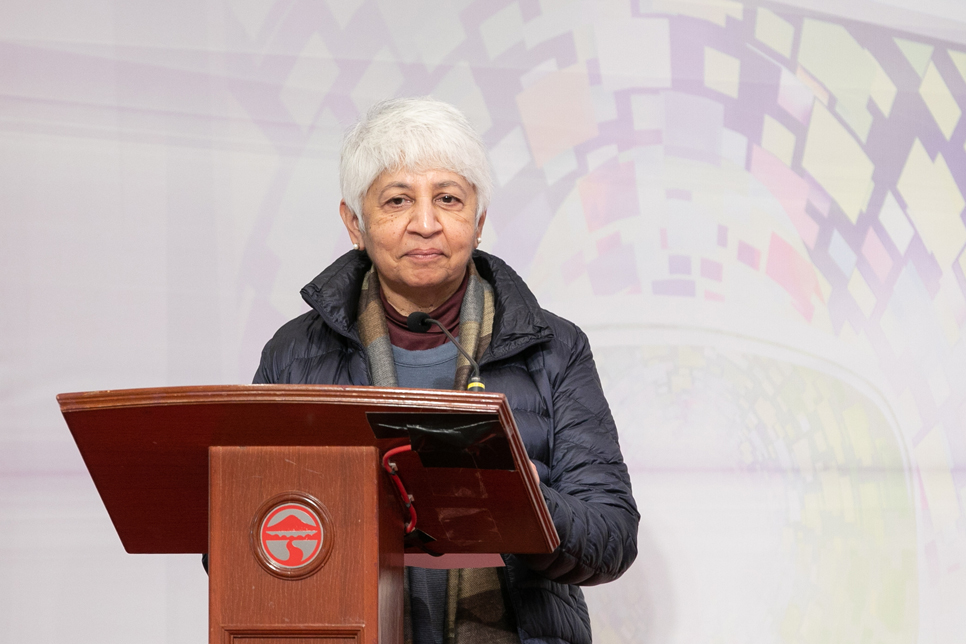
For scholars who choose to work in the field of arts and humanities, one unavoidable task comes with the territory. At various times, especially in an age where science and technology subjects get most attention, they must make the case for their own disciplines, highlighting the benefits at an individual level, for employers, and for society at large.
Nevertheless, to keep in step with the times, it is also important to accept some need for change. And at the Third Liberal Arts Forum, co-organised by the School of Graduate Studies at Lingnan University and the Faculty of Education at the University of Hong Kong on February 10, there was no shortage of opinions and ideas.
In particular, a roundtable discussion on “Repositioning Liberal Arts in the STEM-dominated Era” was a great opportunity to hear the views of leading academics from different countries and get a sense of what the future may hold.
The participants in this hybrid event were Professor James Robson from the University of Oxford; Professor Anthony Welch from the University of Sydney; Professor Rui Yang from the University of Hong Kong; and Professor Tejaswini Niranjana from Ahmedabad University in India. In the chair for the session was Professor Kai Ming Cheng from the University of Hong Kong.

Each speaker has a notable reputation in cross-cultural studies and extensive international experience, as well as general familiarity with the persistent notion that liberal arts education is somehow in crisis.
“STEM is important and technical skills are critical to the economy, but it is very easy to frame this into a zero-sum gain, which it’s not,” said Prof Robson, who has done a lot research around the economic implications of the value of arts and humanities, and the connections. “You don’t need to think about STEM as sitting in a dichotomy with the humanities. The reality is that skills associated with the liberal arts are valuable and diverse and will always have value within the labour market.”
In the latter category, he included communication, empathy in being able to see other people’s perspective, critical analysis to help synthesise complex information, creativity and imagination.
“There is a timeless quality to these skills, which I call narrative skills,” Prof Robson said. “They enable people to tell stories about themselves, their business, whatever it is they are doing in the world of work. And, for me, ‘narrative’ is fundamentally what makes us human, in the way we navigate life, make meaning and have purpose.”
These same skills, he noted, help to build resilience, navigate uncertainty in the labour market, and envision different kinds of futures. Therefore, taking a longer-term view, graduates in liberal arts should be seen as profoundly important as change makers who can also drive forward new visions for society.

Prof Anthony Welch
Prof Welch added that liberal arts institutions have long had to defend themselves against pressure to make courses more practical and utilitarian. But periodic surveys have also recognised their continuing appeal, when assessed by overall enrolment numbers and, by extension, the contribution they make to community welfare.
“Importantly, in the Australian system, the internationalisation of higher education has substantially widened and enriched the prospects for teaching and research in humanities and social sciences,” Prof Welch said. “Also, in an era when knowledge in increasingly thought of in commercialised and commodified form, [China’s traditional academies] stand as an important model of humanistic learning and teaching. The values and practices serve as an important precedent for the modern, vibrant liberal arts university in China and, more generally, for the humanities and social sciences.”

Prof Rui Yang
Basing his comments on personal observations rather than research data, Prof Yang agreed with the school of thought that says liberal arts education will take on increasing importance as the 21st century unfolds. That is because, more than ever, the “automation economy” will require those individuals with the cognitive flexibility to adapt and the habits of mind that allow for life-long learning.
Providing context, though, he noted that the challenge of integrating traditional Chinese education with Western values has been a “spectre” haunting Chinese intellectuals since the early 20th century down to the present.
“But that has long been our purpose in higher education: to combine tradition with modernity and to bring together China and the West.” Prof Yang said. “That still remains our ultimate goal.”

Prof Tejaswini Niranjana
In turn, Prof Niranjana mentioned the “massification” of higher education in India, with gross enrolment now up to 27 per cent. This rapid growth there exemplified by the opening of two new institutions per month and, on average, around 3,000 new students enrolled per day. However, the majority of colleges and universities are privately-managed and run as for-profit commercial enterprises.
“Many of them are single discipline, usually STEM or management or engineering,” Prof Niranjana said. “So, the place of liberal education in these institutions, which don’t treat education as a public good, is precarious to say the least.”
But in terms of overall funding, there is a lot of support for the Sanskrit language and Indian knowledge systems which seek to reinstate a mythical past of an ancient civilisation.
“This is where the state support for non-STEM disciplines is directed,” she said. “So, if you are looking at the liberal arts, I don’t think there is much funding for that.”


